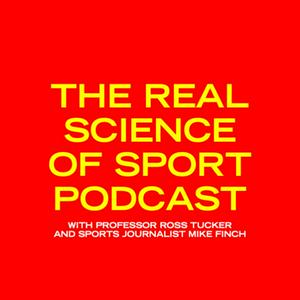Cutting Weight to Win: PFP's Performance Strategy. Or Slippery Slope?
Join DiscourseWeigh in on these and other stories by becoming a Science of Sport Discourse member with a small monthly pledgeShow notesThis week on the Spotlight, we dive into the latest Discourse Digest, unpacking talking points in the news.We begin with the Tour de France Femmes, where Pauline Ferrand-Prévot sealed a dominant win, and then her open discussion about intentional weight loss to improve climbing performance sparked wider conversation. Ross and Gareth explore the science and the risks, contrasting PFP’s short-term approach with Demi Vollering’s “health first” philosophy. We learn from other athletes about "body composition periodization" and share some caution, but also recognition, that elite athletes do "go there" for performance.In track, a new teen sensation has arrived: Cooper Lutkenhaus, just 16, stunned the world with a massive U16 World Record to finish second at the USA 800m trials. He is already the real deal, but that's no guarantee that he's not another star whose flame might flicker. We talk performance trends, hype, and the pitfalls of early stardom.There’s also some heat on the track—of a different kind—as sprinters Noah Lyles and Kenny Bednarek engage in a bit of spicy back-and-forth. Genuine beef or PR play? Either way, it’s getting people talking.Then we turn to IV drips—vitamin infusions marketed as wellness boosts. Ross and Gareth aren’t buying it, calling out the pseudo-science, health risks, and the doping red flags. We also tackle criticism of World Athletics’ SRY gene screen for eligibility in women's athletics. Ross breaks down what the critic got wrong and why women’s sport deserves constructive criticism and alternative solutions rather than unproductive, false dismissals of proposed solutions. A lively disagreement ensues - let us know your thoughts!And finally—smelling salts banned in the NFL. Players are upset, but should other sports follow? Tune in for all this and more.LinksPFP and Vollering talk about weight, performance and healthTrent S' paper on body composition periodization - how to do it: short term, controlled and fully aware of the risk factorsLetsrun recap of the US TrialsThe article critical of the SRY screen. Let us know what you think, constructive or destructive criticism?The IV drip discussion on Discourse, for members only (join now!)The NFL bans smelling salts (fineprint here - teams can't provide them, players can still use) Hosted on Acast. See acast.com/privacy for more information.


